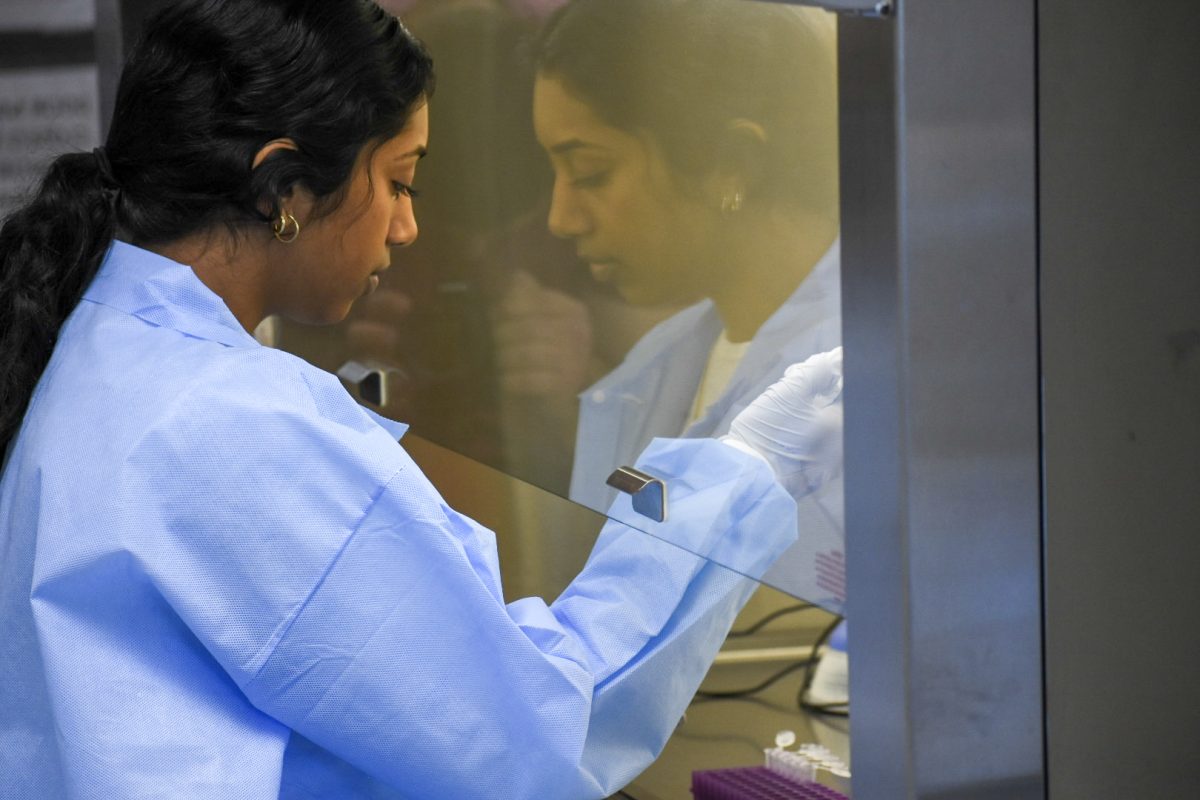During her senior year of high school, Megha Pratapwar was given an offer she could not refuse: a professorial assistantship through the Honors College at Michigan State University.
“It was unheard of at any other college,” she said.
About 200 incoming honors first-year students are appointed a professorial assistant (PA) position each year. These students devote ten hours a week to support faculty research and receive a stipend of about $3,800.
Invited first-year students have a GPA that places them in the top 5% of applicants from their respective schools. Professorial assistants who do well in their first year are typically reappointed for a second year at a higher stipend.
Pratapwar is originally from Buffalo, New York, and is now a third-year student double majoring in nutritional sciences and human biology with a minor in health promotion.
For Pratapwar, her assistantship allowed her to explore different research fields throughout her first two years of college.
“The director of research made it clear that if we ever wanted to change our professorial assistantship, he would be happy to help us find another opportunity,” she said. “So that is exactly what I did when I changed my major to nutrition, and I’m so grateful for that.”
Participation with Two Prenatal Stress Studies
Since September 2021, Pratapwar has worked on the Postpartum and Early Life Exposures (PEARL) study with assistant professor Sarah Comstock, Ph.D. This project studies how nutrition and diet affect the gut microbiome. PEARL is a collaboration with Courtney Carignan, Ph.D. as well as other Child Health Advances through Research with Mothers (CHARM) collaborators.
More specifically, the researchers study how per and poly-fluoroalkyl substances (PFAS), chemicals used in many nonstick pans and containers, can end up in infants’ bodies.
Pratapwar explained that these chemicals are stored in fat tissue, including where breast milk is mobilized. When mothers feed their infants, breast milk may contain high levels of PFAS if they have been exposed.
“But formula feeding isn’t much better (with exposure),” she said. “Michigan is a hot spot for PFAS as the water has been found to have very high levels, so there are a lot of different avenues for these chemicals to reach infants.”
Pratapwar helped start this project and a secondary prenatal stress study with Comstock on four-year-olds’ gut microbiomes and how they are affected by the mother’s prenatal stress. The prenatal stress study (PSS) is a collaboration with Anne Bogat, Ph.D. and other PSS investigators.
Pratapwar is excited to continue working with assistant professor Comstock throughout her third and fourth years as an undergraduate research assistant. This will allow her to see the research process of the two studies from start to finish.
The Postpartum and Early Life Exposures project currently has 45 participating mothers with infants ranging from one to three months old.
“I find it super interesting because there are so many connections you don’t even know about, like how gut bacteria affects neurological development,” she said. “And because we work with so many pregnant mothers and infants, I learn so much about breastfeeding and formula feeding, and it’s so interesting seeing the entire process.”

